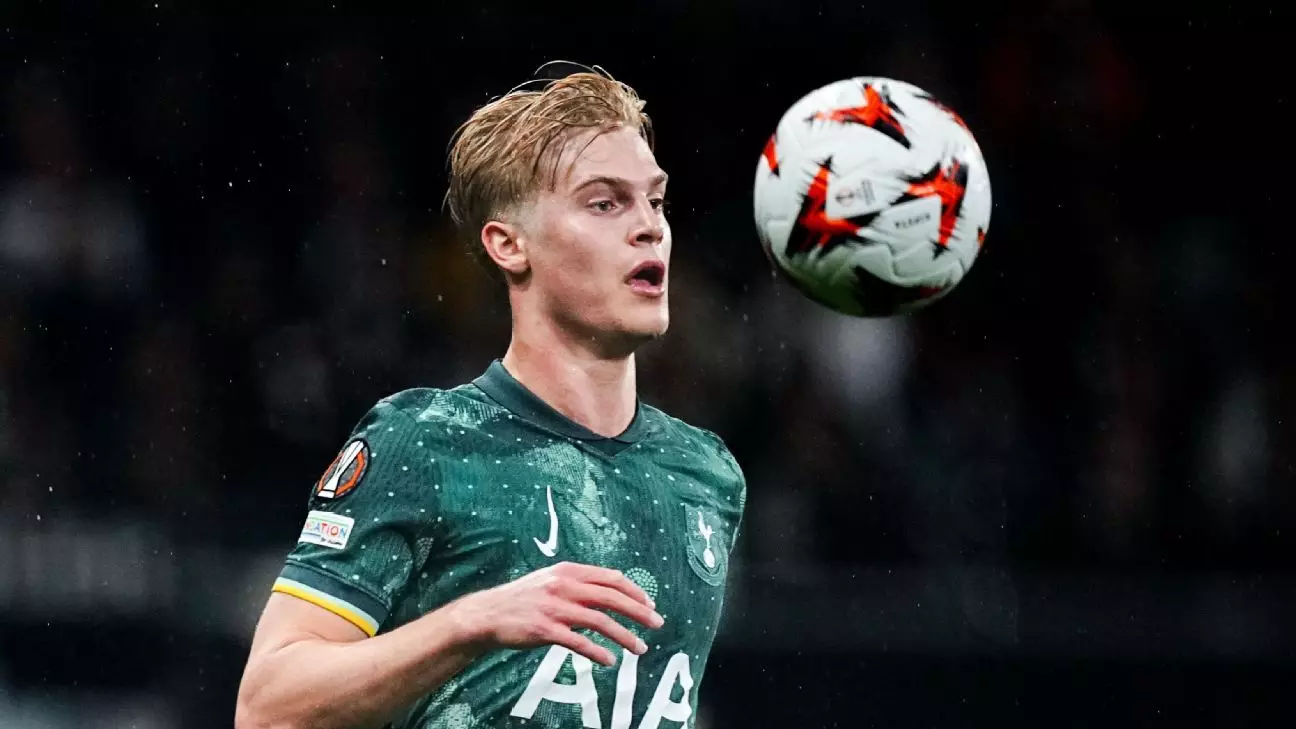Tottenham Hotspur is trapped in an all-too-familiar narrative of injuries at a critical juncture of the season. The unfortunate news comes as Lucas Bergvall’s season is officially over following a severe ankle injury sustained in training. Manager Ange Postecoglou delivered this telling update, expressing regret for the young midfielder’s predicament. This injury may seem like a single setback, yet it echoes the persistent woes that have plagued Spurs throughout the current campaign. Bergvall misses not just matches but vital opportunities for development in this competitive environment.
As the squad heads into what should be an electrifying weekend fixture against West Ham United, the uncertainty about key players like Dominic Solanke and James Maddison only adds a layer of complexity to the already precarious situation. Solanke’s thigh issue and Maddison’s knee concerns cast shadows over their availability. The physical toll on the team raises an essential question: Can a team forged in adversity harness the collective energy to seize immediate success in the Europa League?
The Human Cost of Competition
Injuries add an emotional dimension to the sporting landscape that often gets overlooked in tactical discussions. For managers like Postecoglou, the challenge lies not only in navigating these physical setbacks but in fostering resilience within the squad. “It looks significant enough to keep him out for the rest of the season,” highlighted Postecoglou, referring to Bergvall’s injury with a tone of disappointment that resonates within the entire organization. The psychological impact on the team cannot be dismissed; crucial players sidelined could undermine morale and disrupt chemistry on the field.
With Spurs languishing at a disconcerting 16th place in the Premier League, the focus shifts to the Europa League—an opportunity for redemption. It almost appeared as if, after a devastating 5-1 loss to Liverpool, the team would fracture under pressure. Instead, Postecoglou’s men defied expectations by delivering a commendable performance against Bodo/Glimt. Winning amidst adversity is a hallmark of championship teams, and the resilience exhibited could serve as a launching pad for the remaining matches.
Leadership When It Matters Most
Postecoglou has shown a commendable ability to guide his players through turbulent waters. His comments reflect a level of emotional intelligence that recognizes disappointment as a motivating force. “They need to make you angry and disappointed, and we were,” he remarked, illustrating how the scars of defeat can spark a renewed sense of purpose. The art of bouncing back, particularly when under significant duress, requires not only physical readiness but also mental toughness.
Another key player in this narrative, Son Heung-Min, has been recovering from a foot injury, adding further weight to the team’s struggle with fitness. His impending return holds promise, incorporating a vital spark to an otherwise beleaguered squad. The hope is palpable; it transcends the individual and morphs into a rallying cry for the entire team. The synergy between teammates, particularly in the face of adversity, is a paradoxical strength that can turn potential despair into motivation.
In sum, while Tottenham Hotspur faces considerable challenges on multiple fronts, their story is not solely about injuries and setbacks. Rather, it is a tapestry woven through disappointment and resilience—an ongoing struggle that reflects the heart of sport itself. The potential for greatness lies in their ability to learn and adapt, transforming moments of pain into poignant lessons that could ultimately define their season.

